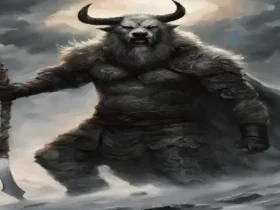When most people think of a Hippocamp, they tend to think of a sea creature that existed in the mythical world. The hippocampus or hippocampus was a mythical creature, who derived from Greek mythology. The aquatic horse Hippocampus is an odd part of our history. They were sometimes called fish-tailed horses because of their long tails that were reminiscent of a fish fin.
There was once a time when fish-tailed horses were thought to be the adult form of the little fish that we now know as sea horses. These horses were important to many sea creatures, including Nereid nymphs who sometimes rode on them to transport. They were also closely associated with the god of the ocean, Poseidon.
1Hippocampus Creature Has A Personality Similar To Modern Day Horses
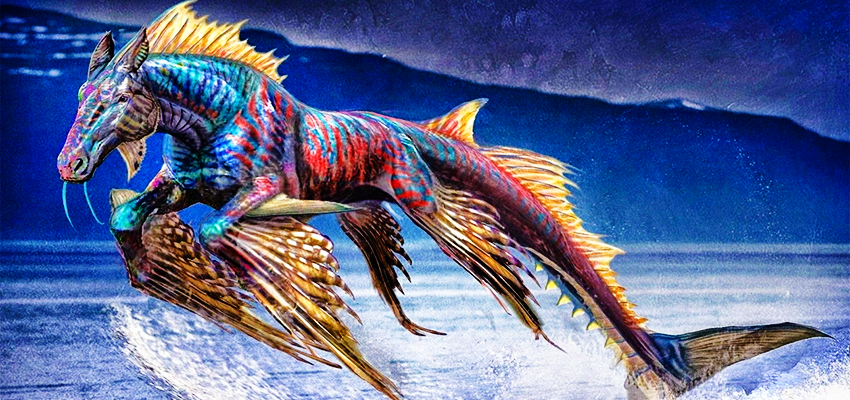
A few intriguing details about the hippocampus are that it was a mythical creature that lived in water and had a personality like that of modern-day horses. It was generally portrayed with the multiple characteristics.
2 Mythical Hippocampus May Have A Hybrid Creature From Fish & Horse
When it comes to the horse body, this hippocampus had the upper body of a horse and the lower body was of a fish along with a long fish tail that looked like of a serpent.
The one thing many accounts get incorrect is the anatomy details behind, horse’s features. Things like what a horse’s hair looks like and how hooves are structured are often neglected in images on social media.
Some accounts described that they have manes made of springy fins instead of hair, and instead of hooves have webbed fins. Wings were often depicted as large on the hippocamp, allowing them to roam the oceans and swiftly under water.
3They Are Predominantly Depicted In Blue & Green Colors
They were predominantly blue or green, although they’re also described with terms like brightening, lightening, and whitening. They were mainly blue or green, but they’re also portrayed as having different colors.
4Word Hippocampus Is Derived From Greek Word That Means Sea Monster
The hippocampus has been a staple in history’s diets, originating in Greece where the name derives from the Greek word ‘hippos’, which means horse, and ‘kampos’, meaning sea monster. In Greek mythology, It is also a popular and well-known creature. In Roman, Phoenician, Pictish, and Etruscan mythology, it also has some presence to it.
5 They Use Their Powerful Tails & Strong Bite To Fend Off The Opponent
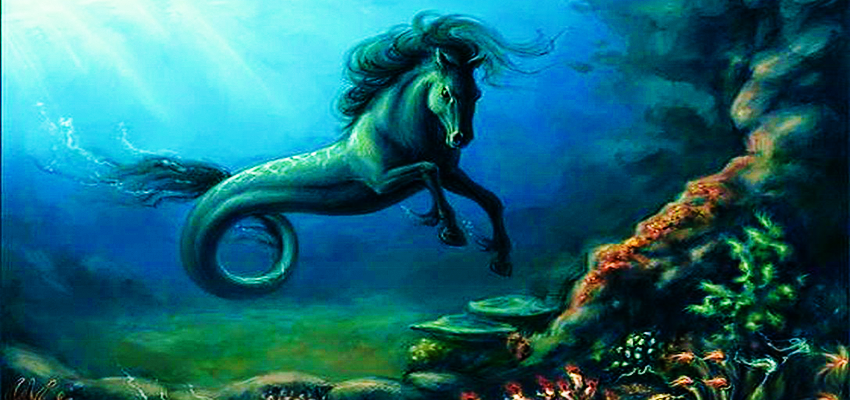
According to legend, the hippocampus were said to have been docile, pretty well-natured and considered quite compatible with other sea creatures. The Hippocampus’s tails were their defining feature. Their powerful tails were used to defend themselves when in danger, and they struggled when they tried to go into a fight. However, they had a strong bite, but preferred to flee from fights rather than take them on.
6Being Swift Swimmers, They Can Swim Miles Of The Sea Within Few Seconds
When it comes to swimming, hippocampus had some special abilities which gave them a distinct advantage over other land-dwelling creatures. Hippocampus were known for being a strong and swift swimmer, one that could cover large distances in very little time. That’s why they were such popular riders.
7 They Live Mostly Deeper Part Of The Sea
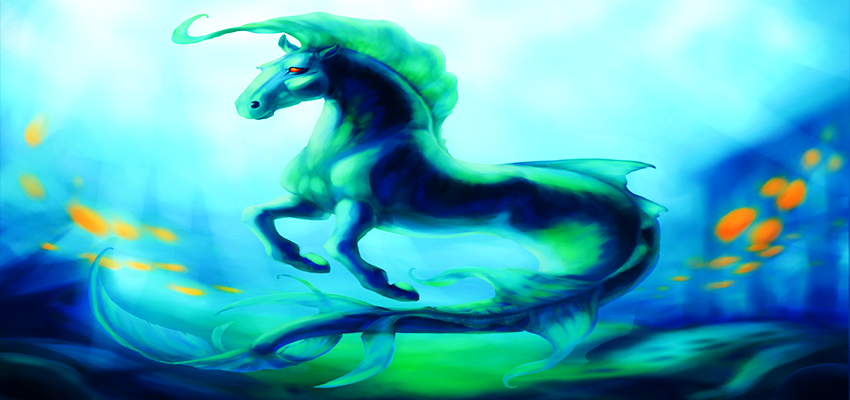
Hippocampus were surprisingly huge, mainly because of the large size of their body. They spent all their time in the deeper part of the ocean because they preferred living there and inhabiting both freshwater and saltwater.
8They Can Survive Without Oxygen In Deep Sea
Hippocampus was able to survive all by themselves. They didn’t need air to survive, and when their food sources were completely depleted, they would explore the surface of the water for a short amount of time before diving back down into the darkness.
Though the specifics are debated, some sources say that they were phytophagous creatures that fed on moss, seaweed, bits of coral reef and variant sea plants. Other sources report that they also fed on small fish at that time.
There is no reliable source to verify this particular legend, and only remains speculation at the moment.
9 Hippocampi Often Travel Around In Groups Of 10 With A Stallion & Many Mares
According to some accounts, the hippocampus actually traveled in groups of ten, identical to lions. The pack Involved of one stallion and several mares. There was also a number of young hippocampus in the pack as well. It took a newly born hippocampus a year to approach physical maturity, but they were still in the early stages of intellect. Aside from not being able to make decisions on their own, their mothers also were as protective of them as they could’ve been. They preferred to have their privacy, and didn’t like having lots of people try to invade their space.
10 From Hope To Creativity, There Are Multiple Symbolism Of Hippocampus

The hippocampus is a beastly creature and a symbol of hope. Since it was benevolent, it often helped people by providing spiritual support to them and bringing peace to their hearts by inspiring hope.
In mythology, the hippocampus is a mythological creature that’s closely tied to creativity and imagination. Sailors loved the hippocampus because it was considered a good prognostic, symbolized agility and strength, and has a range of other connotations. Additionally, it’s a representation of true love, humility, and freedom.
Some people describe having a hippocampus tattoo as feeling free, beautiful, and graceful. They get this image because it is among the most popular designs for tattoos in general. With these meanings in mind, the Hippocampus could be likened to the mythical horse-like creature, Pegasus, had a spiritual significance and represented power, creativity, and knowledge. They both have the same significance in their lore.
11 A True Hippocampus In Know For His Loyalty
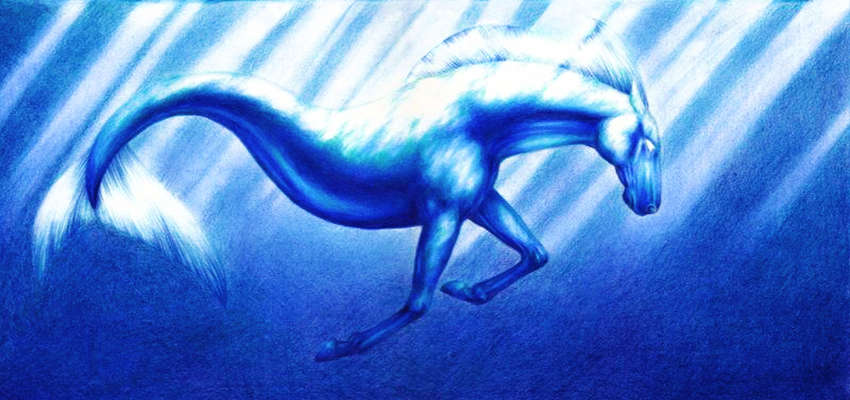
One of the aspects of a hippocampus that we love is their temperament. When it comes to their behavior, they’re gentle and loving creatures. They’re also known to have very good connections with their owners. Despite being a mythical creature, hippocampus were deeply respected by most sea creatures who recognized their loyalty. From mermen to sea elves, they were the proud mounts of high-ranking sea gods.
12Hippocampus Represented Differently In Roman & Greek Mythology But With Similar Essence
One of the creatures often associated with Poseidon was the hippocampus. Homer has described in his work Iliad Poseidon’s chariot as being pulled by two or more horses. Due to their striking presence, these horses became closely connected with the Greek god of the sea. They were revered by the Ancient Greeks as the mounts of Poseidon. In Roman mythology, they were called Neptune’s steeds.
Stories of Hippocampus are like fairy tales, but with a darker, more historical twist. Similar to Greek myths and legends, the tale tells us about how these helpful creatures helped in situations all around the world – from saving people from drowning to helping sailors overcome sea monsters. One of the reasons for it being believed that the sea suds which form when the waves crash is caused by the movement of the hippocampus was because of all the times people had seen it.
13 Kelpies Are The Pictish Mythology Counterparts Of Hippocampus

A lot of Pictish myths and stories have been found in various stone carvings, suggesting that the Picts were a very spiritual and religious people. Pictish mythology includes the legend of “Hippocampus”, also known as “Kelpies” or “Pictish Beasts”. Pictish stones have images of these mythical creatures throughout the region. Although their pictures look similar to the pictures of Roman sea horses, they are not actually the same.
Some stories of the origin of the Roman depiction of the hippocampus are from Pictish mythology. The symbol later made its way over to Rome.
14 In Etruscan Mythology, Hippocampus Is Depicted As A Winged Creature

Etruscan mythology was a rich and prevalent mythological theme in reliefs and paintings. The hippocampus was a common theme in Etruscan mythology that depicted the creatures usually with wings. They were seen within reliefs and paintings on tombs, often with their wings (a beautiful winged horse) at Trevi Fountain.
15Popular Culture Is Also Obsessed With Hippocampus

This term is used throughout the medical field to refer to a crucial part of the human body. The hippocampus is a crucial part of the brain in humans and other vertebrates. The name comes from the particularly unique look of this brain part, which some considered a seahorse-like shape.
When it comes to heraldic charges, the hippocampus was a popular choice in the past. It can be argued that the image of the mythical creature hippocampus has been utilized as a heraldic charge in its own right by way of history. This theme is found all throughout history, in various forms and manifestations it means hippocampus is a symbol that has been recognized for centuries and it has been also used as a decorative motif in silver utensils, bronze utensils, paintings, sculptures and even baths.
In the year of 1933, Air France adopted the winged hippocampus as its corporate symbol and in Dublin, Ireland the unique bronze images of hippocampus are found on lamp posts on the Grattan Bridge and near Henry Grattan’s statue.
The hippocampus is a marine aquatic animal that have made appearances in many Greek mythology-inspired films and TV series and video games, such as “Percy Jackson and the Olympians: Sea of Monsters”, in which two characters, Percy and Annabeth ride on the backside of the hippocampus. They’re also featured in various other games such as God of War.
What is the first thing that comes to mind when you think of the planet Neptune and its moons? The planet’s most interesting small moon, Hippocamp. In 2019, it was named after the mythical creature.

Those who love mythical creatures would know that hippocampus are gentle, beautiful and lovable creatures, it’s no wonder that they remain some of the most famous mythical creatures even today. They have a reputation for their unbelievable speed, fickleness and they also have an outstanding understanding of other creatures as well as deities and even humans. It is not just the human body that requires love and respect. If you treat the hippocampus in a respectful manner, they are considered one of the most loyal, adoring creatures ever to exist.




